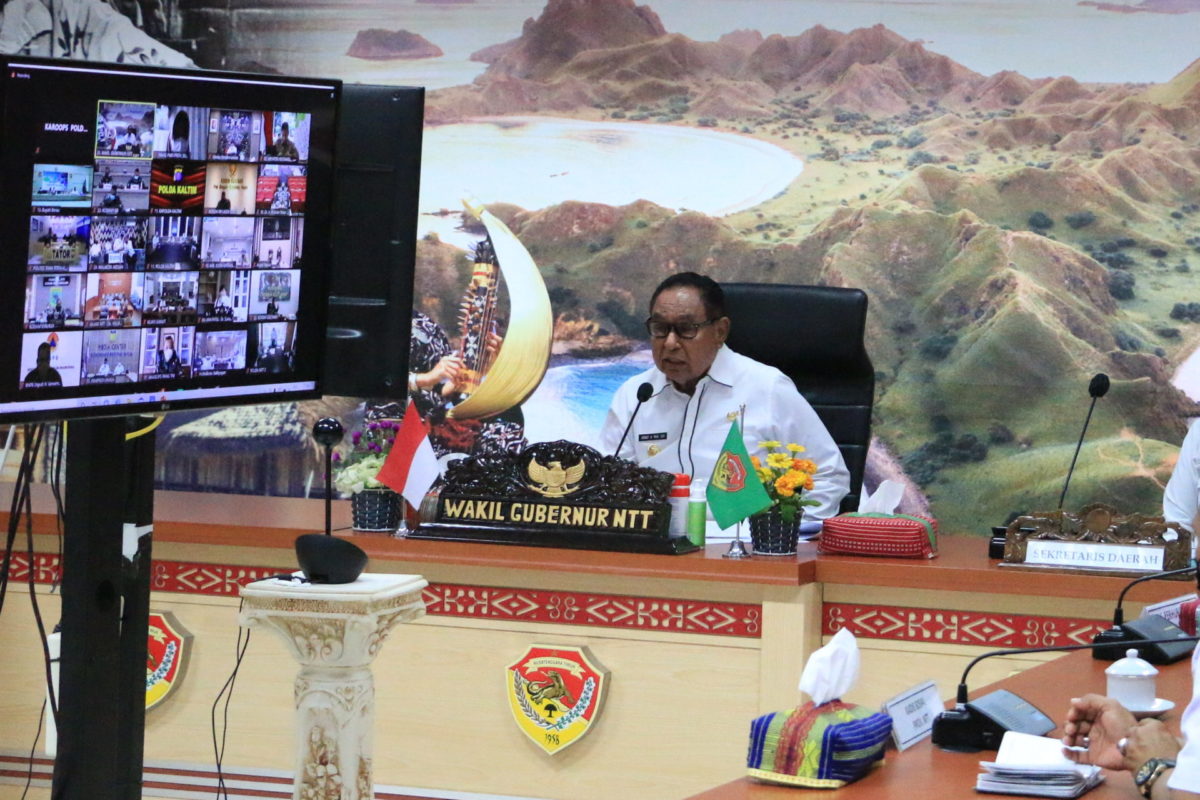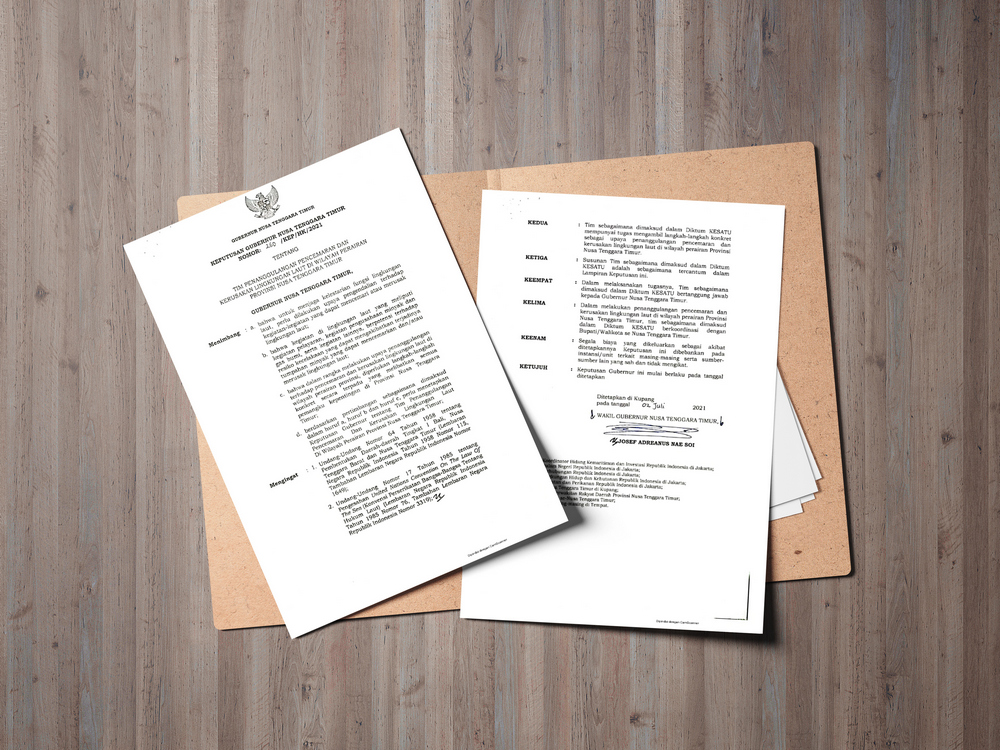This article was published on IW:Learn website
The waters of East Nusa Tenggara (NTT) Province are home to a flourishing ocean ecosystem, but this biodiversity is under constant threats. As oil and gas exploration expands and shipping lanes in the region become ever more congested, the risk of oil spills continues to grow.
On 21 August 2009, a blowout occurred at the Montara oil field off the northern coast of Western Australia, causing the uncontrolled release of oil and gas into the Timor Sea. Hundreds of thousands of barrels of oil spilled into the Timor Sea, causing irreparable long-term damage to the ecosystem and ruining the livelihoods of fishermen and local seaweed farmers.

In July 2021, the NTT Provincial Government took a lead role in protecting the marine environment; taking steps to prevent, prepare for and respond to oil spills. The Governor of NTT has issued Decree No. 260/2021 concerning the Team for Controlling Pollution and Damage to the Marine Environment in the Waters of NTT Province, which combines cross-sectoral local government involvement with additional support from the relevant ministries. The creation of this team is fully supported by the GEF/UNDP/PEMSEA ATSEA-2 Programme.
“The waters of Rote Island are at risk of being affected by the possibility of an oil spill, so it is necessary to strengthen preparedness, supervision and pollution control involving various parties,” said Deputy Governor of NTT Drs. Josef Nae Soi, M.M when opening the online webinar – Prevention and Mitigation of Oil Spills in the Timor Seas – on Wednesday, 28 July 2021. the Provincial Government of Nusa Tenggara Timur (NTT) co-hosted a webinar entitled Prevention and Mitigation of Oil Spill Management in the Timor Sea. Presented together with the Directorate General of Marine and Fishery Resources Surveillance (PSDKP) of the Ministry of Marine Affairs and Fisheries (KKP) and UNDP Indonesia, the webinar was attended by approximately 200 participants.
Although the severity of an oil spill impact depends on a variety of factors, any such incident in a marine environment can harm organisms that live on or around the water’s surface and those that live underwater. Spilled oil can quickly infiltrate food chains, including human food resources.
Located in NTT Province, Rote Ndao is at risk from multiple threats in the Arafura and Timor Seas (ATS) region; from climate change and marine pollution from oil and gas rigs around the Timor Sea, to marine debris and activity from fishing and shipping vessels. These activities affect water and sediment quality, habitats and marine biodiversity in the Arafura Sea, especially in Rote Ndao.
The ATSEA-2 Programme has collaborated with Dr. Won-Tae Shin from Global Ocean, Inc. to identify pollution hotspots at the regional and national levels in ATS. According to Dr. Won-Tae Shin, CEO of Global Ocean, Inc., Rote Ndao District in Indonesia and the south coast of Timor-Leste have been pinpointed as areas most vulnerable to oil spills and hotspots for discarded fishing equipment. “Hopefully this synergistic cooperation can strengthen the Arafura Sea and Timor Sea areas, and have a good impact on the people of East Nusa Tenggara and Indonesia,” said Dr. Agus Prabowo, Head of Environment Unit of the UNDP Indonesia.
ATSEA-2 is the second phase of the Arafura & Timor Seas Ecosystem Action (ATSEA) Programme. In Rote Ndao, ATSEA-2 will continue to provide support to the pollution management team, through information exchange and capacity building, as well as by involving women in planning and decision making in Integrated Coastal Management (ICM) planning.



